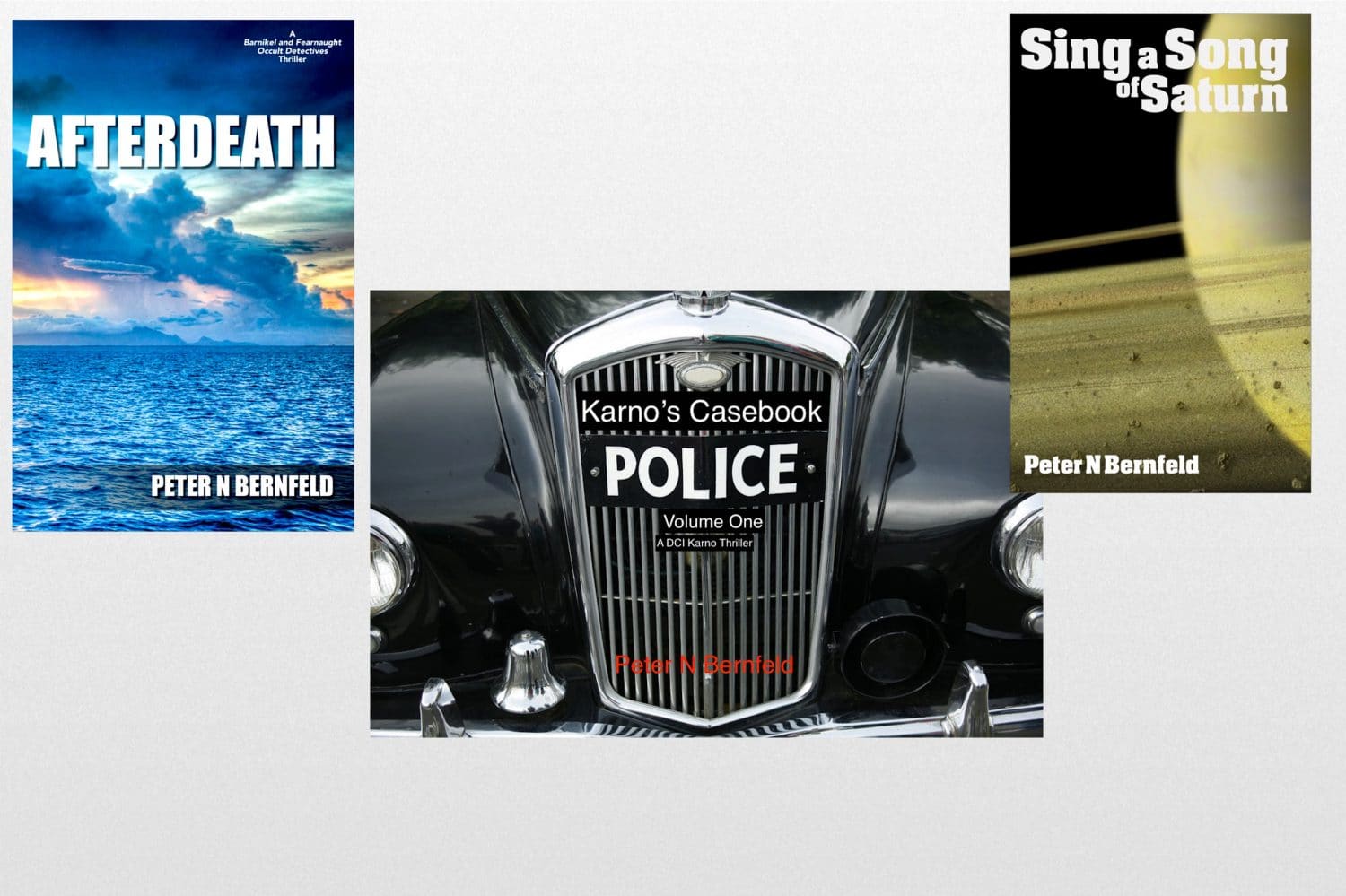
AFTERDEATH-a Barnikel and Fearnought occult detective thriller, SING A SONG OF SATURN-a collection of SF short stories,KARNO'S CASEBOOK VOLUME ONE-a collection of short police stories
No catch, No messing around

No catch, No messing around
This last weekend, the VE day celebrations were overshadowed, in the UK at least, by the General Election on Thursday and the aftermath of what was an unexpected–in some quarters if not here–outcome. There is a train of thought that says the Second World War was the last just war. That might be an arguable point but what is not in doubt is that it was a just war.
We should not forget the sacrifices made by those who fought against the forces of evil, both on the battlefield and on the home front. Perhaps we were not always angels–the bombing of German cities after it became obvious that it was not of itself a winning tactic, comes to mind–but we were on the side of angels and yes–even angels should be held accountable for their actions. Make no mistake, Nazi ideology was evil. It murdered millions in Europe and enslaved countless others. It cast a blight over the German nation, that same nation that it claimed to represent. That blight remains even today. Not because other nations point the finger at todays Germany but because the German people themselves wonder how their parents and grandparents let it happen. Those surviving parents and grandparents still, in the main, hang their heads in shame and have no answer to the next generations questions–why? How?
The ‘how’ is perhaps easier to answer. If I had to sum it up, I would say patriotism ruthlessly manipulated, democracy used as a weapon rather than a form of government and a blatant disregard for the rule of law. But, here’s the thing and it must never be forgotten, the Nazi regime passed laws that legitimised, in their eyes if nobody else’s, every evil that it perpetrated. Laws are by definition legal, but they are not necessarily just, humane or moral. Democratically elected governments would do well to take this to heart.
Today, there is a raging argument developing over what to do about those trying to escape tyranny in their own countries and make a new, safe, more prosperous life for themselves and their families. For various reasons, successive western governments have ignored a growing problem. Post-colonial guilt and economic considerations have played a role in this, but today, matters are coming to a head. A sticking paster solution is being proposed. The EU countries should each shoulder a proportionate part of the burden–financial and human– and the perceived forces of evil should face military sanction. The first proposal meets the criteria if being just, moral and humane. The second is just plain nonsense. Sinking fishing boats, some inevitably with refugees on board, is the moral equivalent of bombing German cities. It might be punishment, but it does not move things further forward. What is needed is a collective moral stand, which is never easy, comfortable or popular with any given electorate. It is up to a nations opinion-formers, be they the elected government, media or perhaps religious organisations, to make a strong moral case for just, not populist, action.
This morning, I have an express parcel being delivered. Thanks to technology, the development of which can be traced back to a time of taking a painful moral stand, I know that the person delivering the parcel is called Bogdan. I know nothing of Bogdan save his name but I do know this. The fact that he is alive, was free to come–or perhaps his parents were free to come–to this country, and the fact that I, because of my ethnic background, am alive today is because a painful moral stand was taken. The cost of that moral stand was immense, but the cost of not taking it would have been higher still.